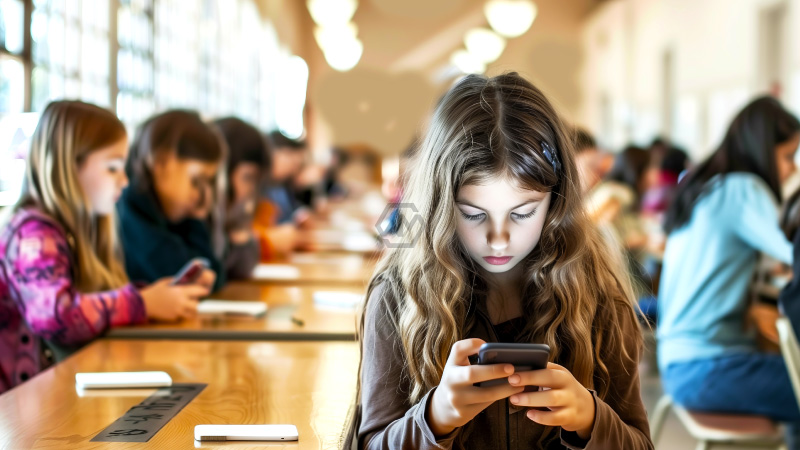- Excessive smartphone use negatively impacts student performance and concentration.
- Teachers face challenges managing classrooms with widespread smartphone use.
- Moderate technology use can enhance learning, but clear guidelines are needed.
The recent UNESCO report highlights the detrimental effects of excessive smartphone use in schools. Despite clear evidence from international assessment data, only a quarter of countries have implemented bans on smartphones in educational settings.
The mere proximity of these devices is enough to distract students, leading to decreased focus, comprehension, and overall academic performance.
Balancing Technology and Education: Insights from UNESCO’s GEM Report
Moderate use of technology can positively influence academic outcomes, but the UNESCO report stresses the need for clear policies and objectives to ensure technology supports, rather than hinders, education. The report also emphasizes the importance of prioritizing fundamental educational resources, such as classrooms, teachers, and textbooks, particularly in lower-income countries, to achieve global education goals.
The report underscores the need for a balanced approach to technology in education. While moderate use of digital tools can enhance learning outcomes, excessive use beyond a certain threshold often correlates with poorer academic performance. This finding suggests that careful regulation and clear guidelines are necessary to maximize the benefits of technology while minimizing its potential harms.
Importantly, the report highlights the need to focus on fundamental educational resources, especially in low and lower-middle-income countries. These regions often lack access to essential resources such as adequate classrooms, qualified teachers, and sufficient textbooks. Investing in these basics is crucial to achieving global education goals and ensuring all students have the opportunity to succeed.
The rapid evolution of technology presents a challenge for educators and policymakers. The UNESCO report notes that technology’s fast pace makes it difficult to evaluate its impact comprehensively and develop informed legislation and policies. The debates surrounding generative artificial intelligence exemplify these challenges, as the implications for education are still emerging.
The UNESCO report makes a compelling case for the careful and regulated use of technology in education. By prioritizing fundamental educational resources and implementing clear guidelines, educators can harness the benefits of digital tools while minimizing their potential downsides, ultimately supporting better learning outcomes for students worldwide.
“Change needs to happen on learners’ terms to avoid repeating a scenario like the one observed during the COVID-19 pandemic, when an explosion of distance learning left hundreds of millions behind.”



